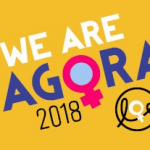A relevant number of children and teenagers provide informal care in Europe. Girls mostly assume this role and the most intensive tasks. Being a young carer moreover has been associated with experiencing worse mental well-being.
Across Europe, an important number of children and teenagers provide informal care to a family member on a regular and unpaid basis when there is an illness or disability in the household. This group of informal carers has been referred to as Young Carers (15-17 years old) and Young Adult Carers (18-25 years old). They perform a broad range of tasks such as personal care (showering, dressing, toileting needs); manual handling (lifting, moving, transferring) medication administration; domestic duties (housework, cooking, shopping); emotional support; and administration duties among others.
Generally, young carers undertake low levels of care but a significant portion assume high and intensive levels of care. Caring roles are defined by children’s individual characteristics such as age, gender, or birth order. Thus, informal care is mainly provided by girls, who also assume the largest and most intensive amounts of care within the informal caregiver’s workforce. This divergence is the result of strong traditional gender-based roles held for years in our society.
Long-established sexist norms have attributed girls and women with the responsibility of looking after others (children, parents, grandparents, siblings) and assuming the main caregiver role within the family. In big families, for example, the oldest children, but especially girls, are the ones expected to assume larger and extended caregiving roles.
The effects of young caregiving
Being a young carer can have positive effects such as closeness with the care recipient, a sense of maturity, empathy and self-esteem. However, it can also have a negative impact on the mental and physical health of young carers, their education, and their social life. Research on the consequences of young caregiving has found a correlation between being a young carer and negative mental health. Young and young adult carers report worse mental health and are more likely to suffer from conditions such as chronic stress, anxiety, or depression when compared to their peers.
Girls, informal care and mental health
Alongside this, girls also perform greater amounts of caregiving compared to boys. Girls, therefore, are more likely to report problems related to mental health issues. In 2019, ME-WE, a project funded by the European Union and aimed at improving the mental health and well-being of young carers, presented a study on the current situation in Europe.
Six countries were included: Italy, the Netherlands, Slovenia, Sweden, Switzerland, and the United Kingdom. Results found that 60% of young carers from the United Kingdom, 33% in Switzerland, 26% in Sweden, 17% in Italy, 16% in Slovenia, and 11% in the Netherlands experienced mental health issues. Between 8% and 11% of the young carers reported having thought about hurting themselves as a result of the caring role.
Young and young adult carers report worse mental health and are more likely to suffer from conditions such as chronic stress, anxiety, or depression when compared to their peers.
The UK and Switzerland presented the highest rates. This shines a light on the toll that caregiving takes on children. Regardless of their age, caring responsibilities impacted their daily life and future. What’s more, the research showed that mental health issues such as self-harm or social exclusion are expected to persist over time if the caregiving role is still performed.
Not only are girls the main caregiving facilitators, they are also the most affected among caregivers. The Cree study from 2003 compared issues described between young female and male caregivers. Girls endured more sleeping and eating difficulties as well as major struggles developing relationships with peers compared to boy carers. The same study showed that bullying was largely experienced by girls.
Additionally, girls were more likely to have self-harmed in the past and a significant number admitted to frequently self-harming. Over 50% of the girls in the study disclosed having thought about suicide compared to 26% of the boys. Overall, girls reported experiencing more severe problems and worries linked to mental health in all the categories than boys, whose main concern, on the contrary, was related to “getting into trouble with the police”.
Recognition and support
Young caregiving is a reality in Europe. As the main caregivers, girls are more vulnerable to experiencing negative mental well-being. Among the informal care workforce, girls additionally assume larger amounts of care per week, increasing their exposure to possible mental health issues.
Young carers need to be included in the health system as allies, but with an emphasis on better enabling their development, health, education, and social inclusion.
Evidence has brought this correlation to light and actions need to be taken in response. Currently, this young workforce remains invisible and little attention has been paid to this issue. Recognition is essential to identify young carers and the individual situation behind each young carer. Formal (governments, school, social care organizations, healthcare) and informal (family, friends) support networks need to be created to offer reliable tools that contribute to mitigate the negative effects of young caregiving.
Governments should recognize and legally protect young caregivers and formal education should be strengthened to identify warning signs and offer support. The health sector, especially mental health professionals, should make resources available to mitigate the effects of informal caregiving. Informal networks that can provide safe spaces should additionally be established. These networks are essential for young carers to express and share their worries and concerns.
The caregiving experience needs to be as beneficial as possible for children, and this role needs to be focused on support rather than intensive caregiving. Young carers need to be included in the health system as allies, but with an emphasis on better enabling their development, health, education, and social inclusion.







Average Rating